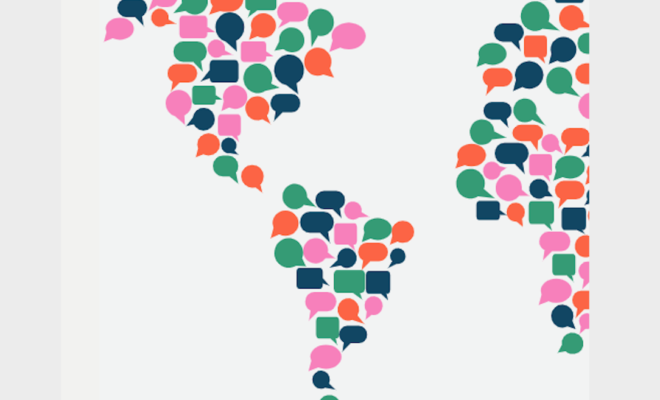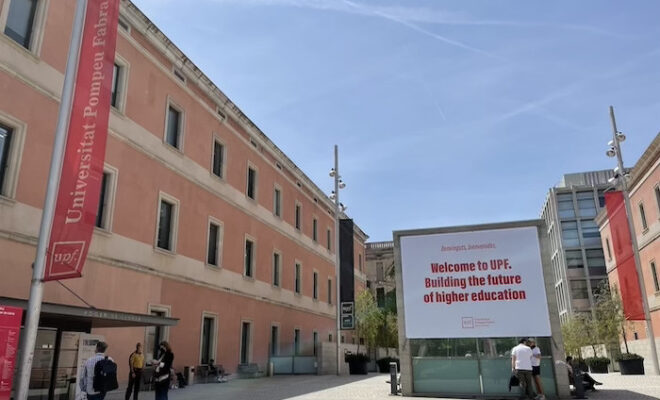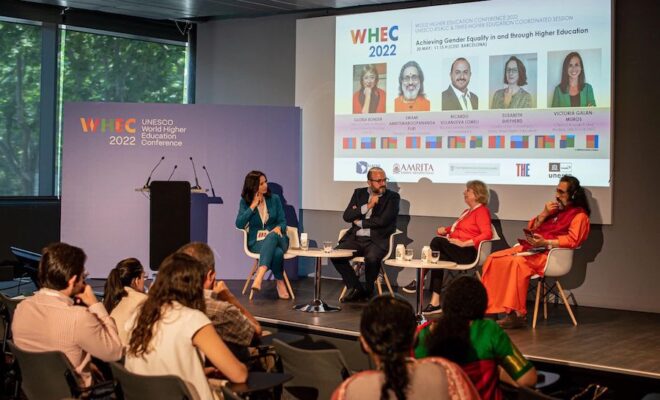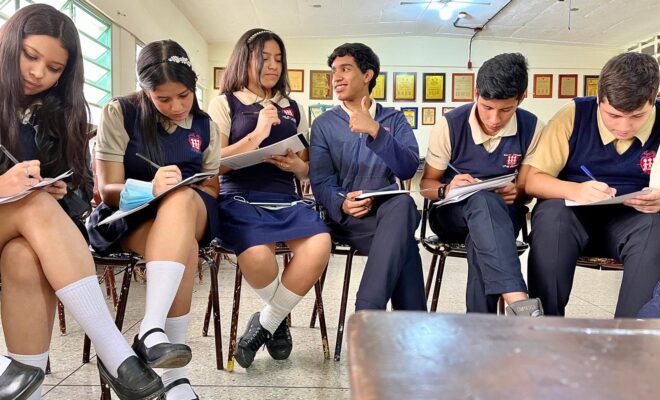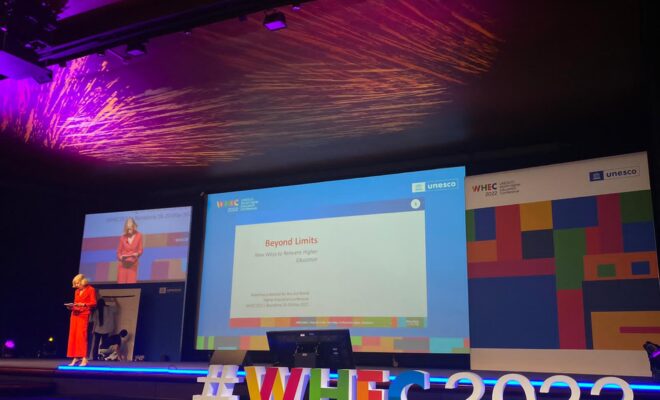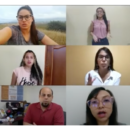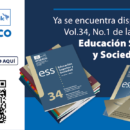Towards #WHEC2022. Webinar 7: Academic mobility in higher education
One of the main axes of UNESCO World Higher Education Conference #WHEC2022, to be held in Barcelona (Spain) next May, is academic mobility in higher education. In order to transfer the approaches of Latin America and the Caribbean, IESALC is carrying out a specific Regional Consultation, through a variety of events in order to bring together as many voices from different sectors as possible.
On this occasion, experts in the area participated in this online seminar – organized jointly with the IDB, OEI, Santander Universities and the Ibero-American General Secretariat.
Moderator: Victoria Galán-Muros, Head of Research and Analysis at UNESCO IESALC
Some ideas from the participants

Francesc Pedró, Director of UNESCO IESALC
Internationalization, of which mobility is one of the fundamental axes, is essential for the construction of a global space for higher education. UNESCO leads the efforts to ensure that mobility actually faces fewer obstacles, and for this reason we have promoted the Global Convention on the Recognition of Qualifications concerning Higher Education and the Regional Convention of Buenos Aires. The latter is about to be ratified, because with the signatures of Granada, Cuba and Peru, only one country is missing for it to enter into force.
We have a deficit of participation, which some would say is a deficit of democratization of mobility. Only 1.2% of higher education students participate in some type of mobility within or outside the region, which is half of the global rate. Just over a third of students from the region who decide to go abroad to complete or pursue their studies, choose to stay in the region. For every 10 students who go abroad, approximately 6 do so outside the region. Greater strength is needed in the creation of university and research networks, in which academic mobility is the real fuel.

Silvie Didou Aupetit, holder of the UNESCO Chair in Quality Assurance in Transnational Higher Education, Mexico
The current mobility situation should not be fully analyzed from the Covid-19 pandemic, but in relation to the structural imbalances that we have been dragging along in Latin America and the Caribbean. Among the imbalances, the elitist nature of mobility stands out, with only 1.14% of students, according to the OEI. With few exceptions, there is a disconnection between mobility and policies to promote the inclusion of vulnerable groups.
It is necessary to answer how to build mobility programs between institutions that complement each other, but are not inserted in care schemes; the reason for mobility: in what geographical North-South, South-South schemes; and what for: to learn skills for intercultural learning.
Retrospectively, building mobility represented a very strong effort for the universities and this probably explains a predominance of doing and producing strengthening indicators, under a rather triumphalist optic, which now should be discussed in terms of its objectives and purposes.
The pandemic showed a lack of reflection on the institutional and governmental management of the risk associated to internationalization. Some countries took measures to assist the repatriation of those who stayed, but it was a one-time event that generated mistrust and must be overcome in order to reactivate mobility. We have to think about the status of students in a mobility situation as immigrants rather than as privileged, which is the general trend, considering the low percentage of those who have access to it.
We should ask ourselves what we should discuss in the coming years: the accreditation of institutions and programs, the type of agreements, investments, results, purposes and dimensions of mobility.
We don`t have hard data on the region as a whole. UNESCO’s objective of strengthening our information systems is still far from being achieved.
Covid-19 showed us that it is necessary to investigate new topics: how to produce and transmit knowledge through the digitalization of teaching and research.
Mobility was affected because physical circulation was limited and there was a rapid take-off of virtual mobility, which will need to be discussed in terms of results and practices, advantages and disadvantages.
What does mobility respond to? Is it an object of individual desire or an institutional aspiration? How is the capital of experience used? The future of mobility will depend on the capacity to bet on mobility and on its adaptation to the peculiarities of the groups as well as to the different types of institutions.
It is necessary to readjust the instructional and programmatic frameworks, re-articulate the normative processes and the objectives. We must think of a mobility engineering, which is not only the responsibility of the international offices, but depends on political will and an attempt to solve the problem of excessive bureaucratization of management processes.

Ana Capilla, Director of Higher Education and Science of the Organization of Ibero-American States (OEI), Spain
In addition to the amount of students mobilized, we lack more data and details on the type of mobilities, their duration, whether they are undergraduate or postgraduate, among other issues. At the OEI we feel responsible for obtaining this information, since the two large information networks in the region are coordinated at the Science, Technology and Society Observatory for the development of homogeneous indicators, and these should be comparable between our countries.
We have focused on the recognition of studies through an innovative strategy to achieve this. The conclusion, published in a report, is to have mobility in what we are really looking for: to study courses, subjects and topics in other universities and build an information system based on these academic units of evaluation. To be able to have a common platform where contents, evaluations, objectives, etc. can be evaluated, where universities can share the subjects and courses they offer and that this platform also serves to guarantee the recognition of these studies.

Oscar Alpa, Secretary for University Policies of the Ministry of Education and Rector of the Universidad Nacional de la Pampa, Argentina
We have to focus on talking about mobility and deepen the process of internationalization within universities with the aim of contributing to the improvement of quality, broadening the possibilities of international cooperation and allowing a more comprehensive and strategic view.
One of the issues to be solved is that many times scholarships are financed and host institutions are chosen based on international rankings, and this obviously does not contribute to take advantage of, or to increase the international flow of mobility. We must analyze the issues of quality assurance in each of the countries, the recognition of degrees, financing, joint research and the management of shared information.

Carmen Torres, Head of Institutional Relations of the Ibero-American Knowledge Space at the Ibero-American General Secretariat (SEGIB), Spain
We aim to increase the mobility of researchers in training within each of the countries and also in other countries of the region. One of the star initiatives, to be presented soon, is the virtual Ibero-American doctoral student training school to facilitate training in various institutions, and to obtain the best from each one of them.
Another of the ministers’ mandates is to share the region’s unique scientific and technological infrastructure to build synergy, not only between higher education institutions, but also between scientific and technological institutions, as well as to generate dialogue and convergence between governments and institutions.

Jaime Leal Afanador, rector of the Universidad Nacional Abierta y a Distancia (UNAD) and president of the Ibero-American Association of Higher Education by Distance Learning (AIESAD), Colombia
Mobility today and in the future must be hybrid, dynamic and contextualized, with social commitment from those who have the opportunity to do so. To evolve from a physical campus to a global one must involve institutional and government commitment to incorporate digital culture as a substantive responsibility. This must be based on the logic of the new pedagogical models focused on learning to learn, both for students and teachers, knowledge management, and ensuring these new skills, because virtuality is not only remote classes.
The key word is inclusion, especially of those communities that are especially vulnerable. It is there where global campuses and pedagogical models focused on autonomous learning offer the integral possibility of quality, relevance, equity, and the return to their places of origin of people who have had this opportunity, so that they can contribute socially.
Presentation
El futuro de la movilidad internacional en la educación superior: las apuestas para América Latina, Sylvie Didou
Learn more: Latin America and the Caribbean consultation addressed main themes of the #WHEC2022

RELATED ITEMS
